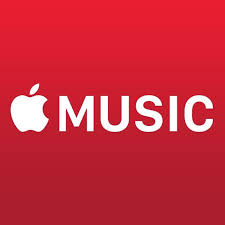No double royalties for streaming or downloading music online in Canada
- IP News Bulletin
- Aug 2, 2022
- 2 min read
The Supreme Court of Canada has held that when music is streamed or downloaded through an internet service, songwriters are only entitled to one payment - not two.
The highest court's ruling on Friday clarifies the intent of a clause in Canadian copyright law that addresses online public disclosure of a work.
After ratifying a global agreement that required signatories to safeguard on-demand transmissions and grant authors the ability to decide when and how their work is made accessible for download or streaming, Canada introduced the clause.
The Copyright Board of Canada determined that the legal requirement meant that making a song or other creative work available constituted a legally protected activity that required payment.
The board ruled that as a result, rights holders are entitled to two payments whenever a work is made available online for streaming or downloading: one when it is made available on a site like iTunes or Spotify and another when a listener actually does so.
The decision of the board was overturned by the Federal Court of Appeal.
Major record companies and the Society of Composers, Authors and Music Publishers of Canada petitioned the Supreme Court to reverse the Court of Appeal's ruling and follow the board's interpretation.
Apple Canada and significant telecommunications firms were among the parties who argued that the court should reject this argument because copyright law does not mandate the payment of two royalties each time a work is streamed or downloaded.
Justice Malcolm Rowe stated in writing for the majority of the Supreme Court that the Copyright Act does not only benefit writers.
Its main goal, according to Rowe, is to strike a balance between the rights of authors and users by ensuring fair compensation for writers and promoting public access to their works.
"Society is enriched when this equilibrium is attained. Users have access to works that they can use as inspiration for their own original artistic and intellectual works, and authors are inspired to generate additional works.
The court ruled that the board's interpretation violated the concept of "technological neutrality" by asking users to pay additional fees to access works online, undermining the intent of copyright legislation.
According to Rowe, "this principle holds that the Copyright Act should not be interpreted in a way that favours or discriminates against any form of technology, absent parliamentary purpose to the contrary."
By ensuring that works are subject to the same rights and generate the same royalties regardless of the technological means used to distribute the works, it protects writers and users.
Authors are given rights pertaining to the reproduction and performance of their works under the Copyright Act.
According to Rowe, "downloading or streaming works will continue to engage only one copyright interest and necessitate paying only one payment—a reproduction royalty for downloads or a performance royalty for streams."
He said, once a work is made available for on-demand streaming, it is considered to have "performed" under the law. A royalty is then due and payable. Because the stream is a part of an ongoing act of performance that started when the work was made public, no extra royalties are due if the work is later streamed by a user.
According to Rowe, the appeal's focus was not on the worth of these rights. Therefore, the board has the authority to determine what royalties should be charged when these rights are used.











Comments